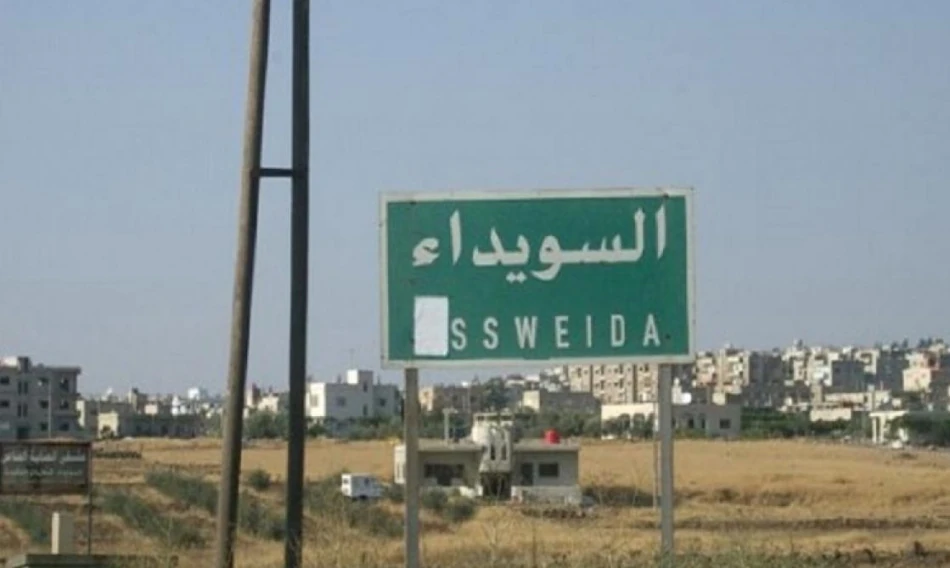
Syrian City Imposes Curfew as Security Concerns Escalate in Al-Suwayda
Syrian Forces Move Into Sweida as Security Crisis Deepens in Druze Heartland
Syrian government forces are deploying into the center of Sweida city following days of deadly unrest in the southern province, marking a significant escalation in the regime's response to mounting tensions in the predominantly Druze region. The move signals Damascus's growing concern over stability in an area that has remained relatively autonomous throughout Syria's 13-year conflict.
Military Deployment and Curfew Imposed
Colonel Ahmed al-Dalati, Sweida's internal security chief, announced that forces from both the Interior and Defense ministries would enter the city center to "protect civilians and restore security" following what he described as "bloody events" in recent days. The deployment represents a notable shift in the government's approach to Sweida, which has historically maintained a degree of independence from central authority.
Authorities have imposed an indefinite curfew starting at 8 AM, restricting movement throughout the city as security forces establish control. The timing and scope of the curfew suggest officials are preparing for potential resistance or further unrest.
Sweida's Strategic Importance
The Druze-majority province of Sweida has long occupied a unique position in Syria's complex sectarian landscape. Unlike other regions that experienced intense fighting during the civil war, Sweida maintained relative stability through informal agreements that allowed local militias to handle security while avoiding direct confrontation with government forces.
This delicate balance has been increasingly strained by economic deterioration, conscription pressures, and growing frustration with Damascus's policies. The current crisis represents the most serious challenge to this arrangement since the conflict began.
Implications for Regional Stability
The military intervention in Sweida could have far-reaching consequences for Syria's fragile stability. The Druze community has historically been skeptical of both the Assad government and opposition forces, preferring to maintain neutrality while protecting their territorial integrity.
A heavy-handed response risks alienating a community that has largely stayed out of the broader conflict, potentially opening a new front in southern Syria near the Jordanian border. This could complicate regional security dynamics and impact ongoing efforts to normalize relations between Damascus and neighboring Arab states.
Economic Pressures Fuel Discontent
The unrest in Sweida reflects broader economic challenges facing Syria, where currency devaluation, fuel shortages, and deteriorating living conditions have sparked protests even in previously stable areas. The government's decision to deploy military forces rather than address underlying grievances suggests limited options for managing growing social tensions.
For international observers, the crisis highlights the fragility of Syria's apparent stabilization and the regime's continued reliance on security solutions to political and economic problems. The outcome in Sweida may serve as a bellwether for how Damascus handles future challenges to its authority in other regions.
Most Viewed News

 Sara Khaled
Sara Khaled






